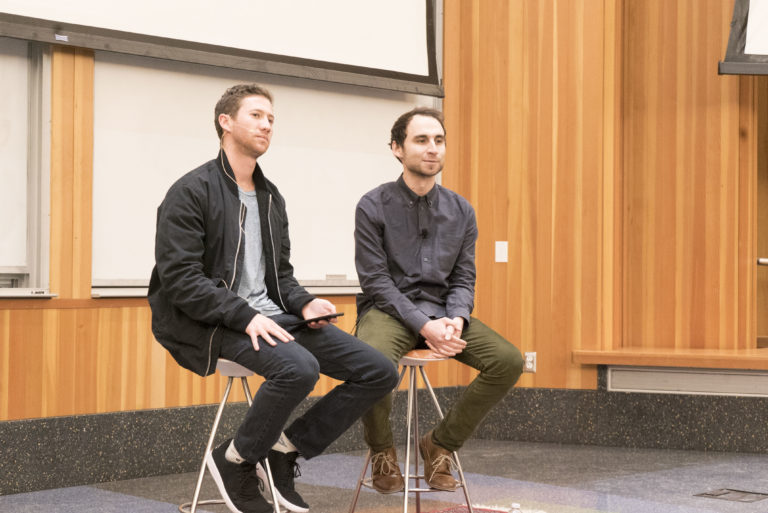How To Build A Viral App: TBH Founder Gives Startup Advice At UC Berkeley

The night before Nikita Bier launched his app TBH, he was on the phone with his lawyer, asking how to liquidate a business. About three months later, more than 5 million people had downloaded his app and Facebook was acquiring it.
At the Newton Lecture Series Tuesday night in the Li-Ka Shing Auditorium, Bier spoke to UC Berkeley students about his journey to creating TBH, a viral app that allows teenagers to anonymously compliment each other through a series of polls. He was joined and interviewed by House Fund founder Jeremy Fiance, one of his early investors.
“Everything seems like an overnight success in Silicon Valley, but it was tough,” Bier said. “I got really good at shutting down apps, really good at failing.”
In total, Bier shut down 14 apps on his way to creating the viral TBH.
Bier had his first major success in the tech world during the 2012 presidential campaign cycle as a student in UC Berkeley. His app Politify allowed users to input personal information and receive a prediction of whether Barack Obama or Mitt Romney’s policies would financially benefit them most. It quickly went viral, reaching 4 million people in the first month after it was launched and receiving coverage from dozens of major news outlets.
But when he launched TBH in the summer of 2017, his luck seemed to be running out. He had put together a team that wanted to develop the next big social app, but after five years their investment money was dwindling.
He chose to launch TBH in a high school in Georgia because it had the earliest semester start date he could find and he wasn’t sure that his company was going to last much longer. But his doubts were soon proved wrong.
Within two days of the launch, 40 percent of the original high school had downloaded the app and it had spread to three more schools. The next day it was in 3,000 schools.
“Imagine a startup that has lost all hope and then Facebook’s arriving in six Ubers at your door and you’re giving them a presentation on the future of social,” Bier said.
The key to TBH’s success, Bier noted, is its constraints. He had seen how other anonymous apps had crumbled because they were unable to control users’ cyberbullying or racist comments.
Bier’s solution was to take away the keyboard in order to keep people focused on positive comments. TBH asks users questions like “Who has the best smile?” or “Who makes you laugh the hardest?” and gives the user an option to choose between four friends. The friend who is chosen is notified that an anonymous person selected them in the poll.
When Facebook acquired TBH in October 2017, Bier was also hired on as a lead product manager for the company, where he currently works. He teased that new updates were on the way for the app, but could not disclose them.
Bier noted that throughout all his endeavors, his greatest asset has been his self-doubt and his ability to question whether or not a product is working.
“If you’re going to do a startup be prepared for a very long journey,” Bier told students in the audience. “Expect the first idea to be wrong, but it might lead you to the right idea.”